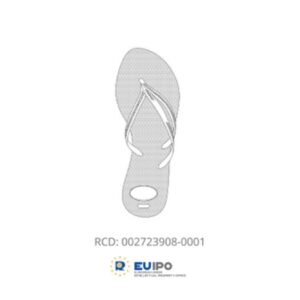Those of us of a certain age are familiar with the iconic image of a baby antelope leaping with a ribbon around its neck known to thousands of drinkers as the logo of the Babycham sparkling perry drink. It is now the subject of a High Court case. The Companies: Western Wines Holdings Ltd and Accolade Wines Ltd who own the trademark have accused Cath Kidston of infringing its Intellectual Property.
Cath Kidston’s company denies the accusation insisting that whilst image of the leaping chamois used by Babycham and the frolicking baby deer it used on its seasonal merchandise are both “hoofed ruminants, unaccustomed to wearing ribbons” – there is no confusing similarity between the two images.
The drinks company claims that the use of the baby deer logo is a clear infringement of its rights. Adding this infringement risks bringing the brand into disrepute, by associating the Babycham drinks brand with Cath Kidston products aimed at children.
Barrister David Wilkinson, for Western Wines Holdings Ltd and Accolade Wines Ltd, both based in Guildford, says in the writ: “The claimants and their predecessors in title have, since 1953, used in relation to Babycham sparkling perry and related goods various iterations of a logo with the common theme of a baby chamois with a ribbon ties round its neck”. Indeed Babycham was the first alcoholic brand and the second ever brand to be advertised on commercial television in the UK with a campaign in 1957”.
“Cath Kidston Ltd has used and continues to use a logo in relation to its Christmas 2012 advertising campaign and range of related goods, which depicts a baby deer with a ribbon tied around its neck, which is substantially similar to the Babycham logo,” adds Mr Wilkinson.
“Their use in the course of trade of the Kidston Logo without due cause in relation to goods similar to those for which the registered marks are registered, take unfair advantage of, and is detrimental to, the distinctive character and repute of the Babycham logo,” it states.
Mr Wilkinson says that the drinks companies want on injunction to stop Cath Kidston Ltd using the deer logo, plus “delivery up or destruction” of all products marked with the logo, and an inquiry into damage caused, plus legal costs.
Philip Roberts, for Cath Kidston Ltd, states that “no admissions” are made as to the ownership of the trade mark and that the two wine companies should be “put to strict proof thereof.”
Denying the two logos are substantially similar or have confused shoppers, he continued: “Since 1953…Babycham branded sparkling perry has featured a particular stylised illustration of a springing chamois goat-antelope with a blue ribbon tied round its neck.
“It is admitted and averred that Cath Kidston Ltd has featured various images of young deer in relation to its Christmas 2012 range of goods and associated advertising campaign.
“It is denied that any of the said deer are ‘substantially similar’ to any of the chamois.
“While it cannot be denied that, by nature, deer and chamois are both hoofed ruminants, unaccustomed to wearing ribbons, the differences in the manner of execution speak for themselves, not least arising out of the absence of horns and the springing ‘springbok’ stance.”
Mr Wilkinson says that the drinks companies want on injunction to stop Cath Kidston Ltd using the deer logo, plus “delivery up or destruction” of all products marked with the logo, and an inquiry into damage caused, plus legal costs. The case continues.
Trademark infringement can occur even when two similar marks (logos in the case) appear for different goods. S 10 (3) of the 1994 Trade Marks Act states that:
A person infringes a registered trade mark if he uses in the course of trade a sign which—
(a)is identical with or similar to the trade mark, and
(b)is used in relation to goods or services which are not similar to those for which the trade mark is registered,
where the trade mark has a reputation in the United Kingdom and the use of the sign, being without due cause, takes unfair advantage of, or is detrimental to, the distinctive character or the repute of the trade mark.
It is this provision that will prevent me from registering a famous brand in a different product or service, just so I can benefit from their powerful reputation.











